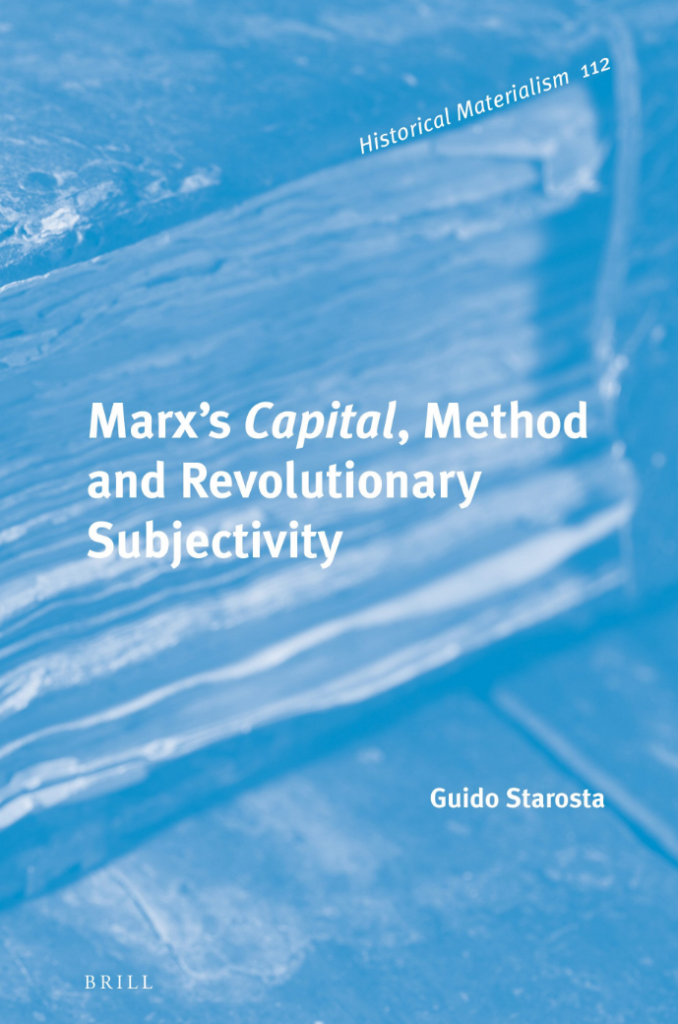Guido Starosta, Universidad Nacional de Quilmes & CONICET
In Marx´s Capital, Method and Revolutionary Subjectivity, Guido Starosta develops a materialist inquiry into the social and historical determinations of revolutionary subjectivity. Through a methodologically-minded critical reconstruction of the Marxian critique of political economy, from the early writings up to the Grundrisse and Capital, this study shows that the outcome of the historical movement of the objectified form of social mediation, which has turned into the very alienated subject of social life (i.e., capital), is to develop, as its own immanent determination, the constitution of the (self-abolishing) working class as a revolutionary subject. A crucial element in this intellectual endeavour is the focus on the intrinsic connection between the specifically dialectical form of social science and its radical transformative content.
Biographical note
Guido Starosta is Professor of the History of Economic Thought at the National University of Quilmes, Argentina and Adjunct Investigator at the Council for Scientific and Technical Research. He has published many articles on value-theory, method and subjectivity in the Marxian critique of political economy.
Readership
All interested in the development of Marx’s critique of political economy, the history of economic and political thought, value-form theory, the dialectical method and Marx’s early writings, the Grundrisse and Capital.
Table of contents
Acknowledgements
Introduction: On the Current State of Revolutionary Theory
Part I. Marx’s Early Critique of Political Economy: The Discovery of the Revolutionary Subject and the Development of Science as Practical Criticism
1. The Dialectic of Alienated Labour and the Determinations of Revolutionary Subjectivity in the Paris Manuscripts
2. The Overcoming of Philosophy and the Development of a Materialist Science
3. Marx on Proudhon: The Critique of Dialectical Logic and the Political Determination of Science as Practical Criticism
Part II. Dialectical Knowledge in Motion: Revolutionary Subjectivity in Marx’s Mature Critique of Political Economy
4. The Commodity Form and the Dialectical Method
5. The Role and Place of Commodity Fetishism in Marx’s Dialectical Exposition in Capital
6. The Commodity Form, Subjectivity and the Practical Nature of Defetishising Critique
7. Capital Accumulation and Class Struggle: On the Content and Form of Social Reproduction in Its Alienated Form
8. Real Subsumption and the Genesis of the Revolutionary Subject
9. By Way of a Conclusion: Further Explorations into the Determinations of Revolutionary Subjectivity
Bibliography
Index

